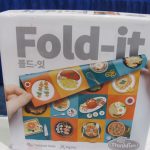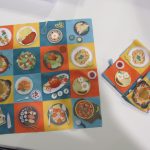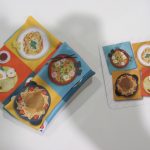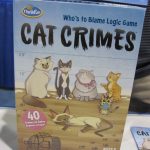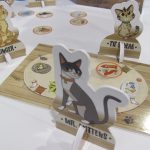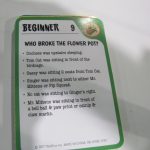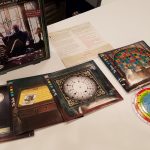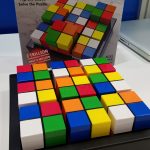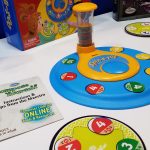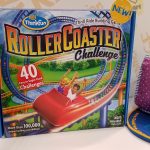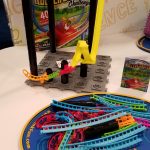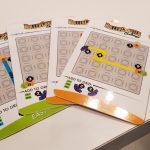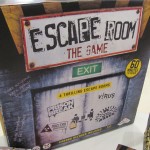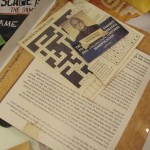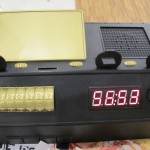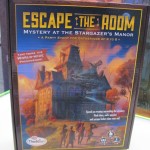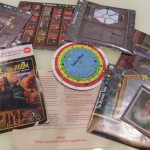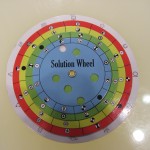Hot Jobs
07 Feb
Posted by David Miller as Card Games, CCGs, Electronic Games, Miniatures, Modern Board Games, RPGs, War Games
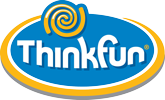 Troy University in Alabama is looking for adjunct faculty with tabletop experience to teach online Game Design and Development classes.
Troy University in Alabama is looking for adjunct faculty with tabletop experience to teach online Game Design and Development classes.
Along with several sales and distribution positions, Learning Resources has an opening for a Marketing Coordinator to handle social media and influencer campaigns and support trade shows.
At Educational Insights in Gardena, California, there are opportunities for an Associate Marketing Manager, to manage PR, social media, and the company’s customer loyalty program, and a Product Manager, to lead conceptualization, manage vendor relationships, and collaborate with functional teams as required in the development of new products.
ThinkFun in Alexandria, Virginia has an opening for a Human Resources Manager.
Wizards of the Coast in Renton, Washington is recruiting for:
- Principal Game Designer, requiring significant experience and a passion for Magic, The Gathering.
- Creative Lead to help grow the company’s digital business (Magic, D&D, and Avalon Hill).
- Director of Communications and Publicity, skilled at both corporate and brand-level communications.
- Product Marketing Manager, supporting regional development and localization for MtG.
- Principal Game Designer for digital publishing, requiring at least 8 years of AAA experience.
Tabletop Tycoon in Londonderry, New Hampshire needs an Accounting & Bookkeeping Lead. Responsibilities include developing budgets, reviewing invoices, and managing workflows.

Games Workshop has many openings in sales and retail, also one for a Trainee Citadel Miniatures Designer and a one for a Visual Merchandising Manager. The former will sculpt minis. The latter will create product displays.
An unnamed United States board game manufacturer is looking for a UK Marketing Director, among who’s responsibilities will be managing two PR companies and an advertising agency.
Bezier Games is in need of an experienced, full-time Social Media Manager to generate buzz. The position is based in Knoxville, Tennessee.
Renegade Game Studios is seeking a Development Coordinator to manage the playtesting process from its San Diego office. The company is also looking for a Video Editor to help with 1-2 projects per month.
Atlas Games has an opening for a Marketing Coordinator in Duluth, Minnesota. The successful candidate must have industry knowledge, as well as skills in writing, editing, analytics, and task management.
- Comments Off on Hot Jobs
ThinkFun Acquired By Ravensburger
20 Sep
Posted by David Miller as Card Games, Modern Board Games, Other
 ThinkFun has been acquired by international toy company Ravensburger AG. ThinkFun, perhaps best known for its logic puzzles, such as Rush Hour, also produces educational games like Math Dice and the new //CODE series, and recently acquired Khet: The Laser Game.
ThinkFun has been acquired by international toy company Ravensburger AG. ThinkFun, perhaps best known for its logic puzzles, such as Rush Hour, also produces educational games like Math Dice and the new //CODE series, and recently acquired Khet: The Laser Game.
ThinkFun will join the Ravensburger North America division along with Wonder Forge and Brio. The company, however, will continue to operate out of its Alexandria, Virginia offices and will retain current staff.
- Comments Off on ThinkFun Acquired By Ravensburger
 ThinkFun has acquired the rights to Khet: The Laser Game and is planning to relaunch it in November as Laser Chess (retail price $40). Though the Egyptian theme will be replaced by standard Chess pieces, ThinkFun says gameplay will be unchanged.
ThinkFun has acquired the rights to Khet: The Laser Game and is planning to relaunch it in November as Laser Chess (retail price $40). Though the Egyptian theme will be replaced by standard Chess pieces, ThinkFun says gameplay will be unchanged.
Khet was previously published by Innovation Toys, which had won a patent infringement lawsuit against MGA Entertainment for its game Laser Battle. ThinkFun also sells a laser-based challenge puzzle, Laser Maze.
- Comments Off on ThinkFun Acquires Khet: The Laser Game
 Due in August from ThinkFun is something a little different for the company—actually, a little different all around. It’s a game for 2-4 called Fold-It ($18). Each player gets a cloth printed with an array of pictures representing different dishes of food. Then a card is flipped over with a 2×2 set of those dishes. Immediately, the players race to fold their cloths such that the only dishes showing match the ones on the card.
Due in August from ThinkFun is something a little different for the company—actually, a little different all around. It’s a game for 2-4 called Fold-It ($18). Each player gets a cloth printed with an array of pictures representing different dishes of food. Then a card is flipped over with a 2×2 set of those dishes. Immediately, the players race to fold their cloths such that the only dishes showing match the ones on the card.
For September, ThinkFun plans a challenge puzzle for the cat fans, one that’s more logic than geometric or graphical. Each of the 40 clue cards in Cat Crimes ($13) features a series of story-oriented hints and through careful positioning and deduction, the player tries to figure out which of the pack committed the mischief.
- Comments Off on ASTRA 2017—Think Fun
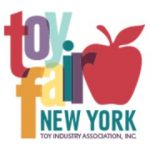 At Toy Fair, ThinkFun’s booth was full of puzzles and a few games. We saw the next entry in their Escape the Room line: Secret of Dr. Gravely’s Retreat (available now, $22). Containing four packed envelopes of props, puzzles, and clues, the new case has a higher age range. “Mystery at the Stargazer’s Manor was big hit for us,” explained Kacey Templin, “but we had a lot of feedback to make the next one a bit more difficult, a bit more adult.” Thus, the recommended age moved slightly forward from 10 to 13 and up.
At Toy Fair, ThinkFun’s booth was full of puzzles and a few games. We saw the next entry in their Escape the Room line: Secret of Dr. Gravely’s Retreat (available now, $22). Containing four packed envelopes of props, puzzles, and clues, the new case has a higher age range. “Mystery at the Stargazer’s Manor was big hit for us,” explained Kacey Templin, “but we had a lot of feedback to make the next one a bit more difficult, a bit more adult.” Thus, the recommended age moved slightly forward from 10 to 13 and up.
Color Cube Sudoku (March, $20) replicates a 6×6 Sudoku puzzle with nine colored cubes. Orient, spin, and swap cubes to solve a Sudoku puzzle using colors instead of numbers.
But I thought the coolest thing there was Spin-A-Roo (in stores in March, $20), a number counting game for the preschooler to second grade set. On your player mat, you have four numbers. You race to grab numbered discs off of the central spin-a-roo piece, either one up or down from the numbers you currently are showing. One neat thing about the game is the spinning element on the central unit: just spin it once and the board is repopulated with tiles — it’s actually fun to set up the next round!
RollerCoaster Challenge (summer, $22) is designed by the person that created Gravity Maze. In this, you’re taking several roller coaster elements, and buildling out tracks. You can try one of the forty challenge cards that come with the game, or — as I suspect I’d do — just use it to build your own coaster set. Currently on Kickstarter — ThinkFun’s first foray using the crowdsourcing platform — backers can receive an exclusive ThinkFun-colored blue car.
- Comments Off on Toy Fair 2017—ThinkFun
Hot Jobs in the Game Industry
02 Aug
Posted by David Miller as Card Games, CCGs, Electronic Games, Modern Board Games, RPGs
Would you like to be the primary person responsible for the Monopoly brand or help preserve games for museum archives or develop the digital version of a popular card game?
At Hasbro, the numerous open jobs include Senior Director of Global Marketing (“define and drive the global strategy for Family Gaming”), Design Manager (supervise technical design development efforts for a games category product line), and Product Designer (for “Phygital Games” combining physical and digital products). Subsidiary, Wizards of the Coast, is looking for, among others, a Director of Competitive Gaming and eSports for Magic: The Gathering, a Game Designer fluent in Japanese for Duel Masters, and a Principal Product Designer to oversee MtG R&D efforts and “develop strategic direction for block environments.”
Spin Master wants to hire a Public Relations Coordinator to manage outreach to press and a Senior Copywriter to author marketing materials.
Mattel has three Senior Designer positions open in the Boys Toy Box team for people with “a passion for action figures and/or game design.” Also positions for a Sr. Manager Digital Marketing and a Digital Producer.
ThinkFun is looking for a Product Manager and a Senior Product Manager to help organize the company’s projects, keep them moving forward, and manage quality.
Among the people that The Strong (National Museum of Play) is looking for are a Director of Conservation (to preserve games and toys in its collections), a Project Cataloger (to digitize and inventory games and puzzles), and a Teaching Host (to work with visiting school groups).
Ceaco (A.K.A. Gamewright) needs a Sales & Marketing Coordinator to assist with accounts, prepare marketing materials, and analyze sales data.
White Wizard Games (Star Realms) has an opening for a Digital Deckbuilder, that is, someone with experience in server-side apps and “a passion for card games.”
Thames & Kosmos needs a Purchasing & Planning Coordinator for analyzing sales data, managing inventories, and working with suppliers.
TOMY (Battroborg, Mr. Mouth) is recruiting for several positions: Brand Assistant, Digital Merchandising Manager, and Legal & Marketing Coordinator.
Toobeez (U.S. distributor of Funskool games from India) seeks a Junior Sales and Marketing Executive to help with social media, email marketing, and specialty retailer support.
The Toy Industry Association needs a Communications Specialist/Content Developer and a Director of Audience Relations. Both positions have a fair amount to do with New York Toy Fair.
Toyjobs is a specialty recruiter for the toy industry.
- Comments Off on Hot Jobs in the Game Industry
Escape rooms, one of the hottest new trends in entertainment, are a kind-of live adventure game. Participants are locked in a room or similar location and given usually about an hour to solve puzzles and follow a series of clues that finds the key and lets them out. Most are built around a theme or story and designed for groups of 4-6 friends.
But though escape rooms are popping up in many urban locations, they’re not accessible to many people, can sometimes be difficult to schedule, and can cost a hundred dollars or more for a 1 hour session. Enter several companies offering escape rooms to go.
Developed by Identity Games and licensed for North American distribution by Spin Master, Escape Room The Game is a $40 package due in the summer that can run 2-5 participants through four different rooms. The clues, puzzles, and mysteries for each room are contained in three envelopes. When participants believe they have solved an envelope, they choose one of the included keys and plug it in to the game’s electronic timer, called a “chrono decoder”. If they’re correct, they can move on to the next envelope. If not, the chrono decoder imposes a time penalty. Though the base game is not yet at retail, Identity is already at work on expansion packs, which should make use of the same chrono decoder.
Another at-home option, ThinkFun’s Escape the Room: Mystery at the Stargazer’s Manor, addresses the problem of hiding answers with a “solution wheel” rather than something electronic. The game begins with the reading of a scene card and proceeds along a story line. Every puzzle solved on the way leads to a symbol and those symbols have to line up in a certain way on the wheel in order to trigger the next stage of the mystery. Due in March, Mystery at the Stargazer’s Manor is just a single room activity but is timed at 90 minutes and priced at only $22.
There’s also the Escape Room In A Box: The Werewolf Experiment Kickstarter project. At $45, this one is also only a single room game. However, it is a more handcrafted experience with jars, locks, and other more substantial elements. Also, certain replacement parts will be available, so that the kit can be used to host other teams.
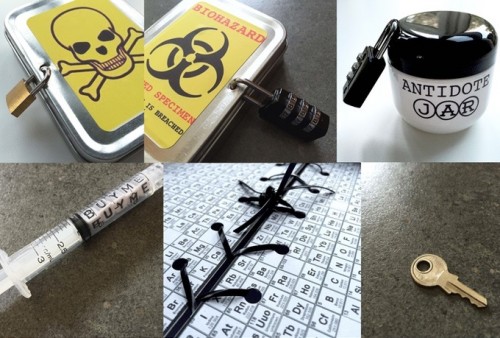
- Comments Off on Escape Rooms on the Go
BigLeap Challenge for Games That Make Kids Smarter
01 Oct
Posted by David Miller as Card Games, Gamification, Modern Board Games, RPGs
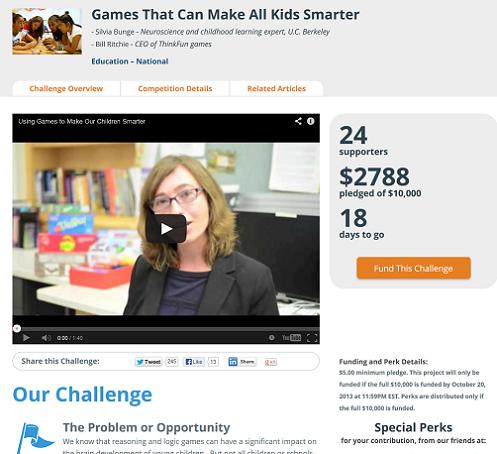 BigLeap is a cross between crowdfunding, like Kickstarter or Indiegogo, and an inducement prize contest, like the Ansari XPRIZE or the Orteig Prize. “Starters” identify a problem and design a project around a goal and a prize. “Supporters” contribute funds toward that prize. And “Challengers” compete to reach the goal and win the prize.
BigLeap is a cross between crowdfunding, like Kickstarter or Indiegogo, and an inducement prize contest, like the Ansari XPRIZE or the Orteig Prize. “Starters” identify a problem and design a project around a goal and a prize. “Supporters” contribute funds toward that prize. And “Challengers” compete to reach the goal and win the prize.
What’s interesting about BigLeap, besides the approach, is that the very first “challenge” on the website is a game project. Jointly started by Dr. Silvia Bunge, Assistant Professor at the University of California at Berkeley, and Bill Ritchie, co-founder and CEO of ThinkFun, the challenge aims to produce games that make children smarter.
At Berkley, Dr. Bunge has been studying how playing games helps develop reasoning and problem-solving skills.
Our small but influential study showed that playing fun, off-the-shelf reasoning and logic games in a social group for just 2-3 hours a week was able to boost these critical skills by over 30% and even boosted IQ scores by 10 or more points.
The problem is that purchasing games to support a school program can get expensive. So what the project seeks from challengers are game designs that build reasoning and logic skills but can be produced at low cost with common household items or art supplies. From supporters, Bunge and Ritchie are hoping to raise $10,000 for prize money.
With 18 days to go, $2,800 has been raised so far.
Those who donate $50 or more earn ThinkFun games as perks. The individual who gives the most ($2,000 minimum) will get a custom 3-D physical brain model (medical clearance and scan required at Berkley).
- Comments Off on BigLeap Challenge for Games That Make Kids Smarter
Trending
- Massdrop.com
- Oh the Irony—Illuminati Card Game Continues to Inspire Conspiracy Theorists
- Home
- Footprints, an Educational Ecology Game
- USPS Adds Board Game Flat Rate Box
- Baila, the Estonian Drinking Card Game
- Crystal Caste Wins Dice Patent Suit Against Hasbro
- Mirror Game, Red and Blue
- Are Board Games Dangerous?
- The Truth About Dominoes On Sunday in Alabama
Archives
Most Popular Articles
- Oh the Irony—Illuminati Card Game Continues to Inspire Conspiracy Theorists
- The 20 Most Valuable Vintage Board Games
- The Truth About Dominoes On Sunday in Alabama
- Sequence Game, and Variants
- USPS Adds Board Game Flat Rate Box
- Baila, the Estonian Drinking Card Game
- The 13 Most Popular Dice Games
- Are Board Games Dangerous?
- Guess Who? The Naked Version
- What Happened to the Jewel Royale Chess Set?
Recent Posts
- Toy Fair 2019—Breaking Games
- Talisman Kingdom Hearts Edition
- Toy Fair 2019—Winning Moves
- Toy Fair 2019—Games Workshop
- Toy Fair 2019—Star Wars Lightsaber Academy
- Toy Fair 2019—Stranger Things Games
- Toy Fair 2019—HABA
- Licensing Roundup
- Game Bandit
- 2018 A Difficult Year For Hasbro But Not For D&D Or MtG
Recent Comments
- on Toy Fair 2019—Winning Moves
- on Game Bandit
- on Second Look—Dungeons & Dragons Waterdeep Dragon Heist
- on Crowdfunding Highlights
- on Beyblade SlingShock
- on Game Bandit
- on Game Bandit
- on Watch This Game!, the Board Game Review Board Game
- on Second Look—Vampire: The Masquerade 5th Edition
- on Palladium Books Loses Robotech IP License, Cancels Five-Year-Overdue Robotech RPG Tactics Kickstarter

